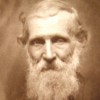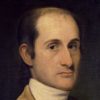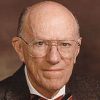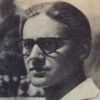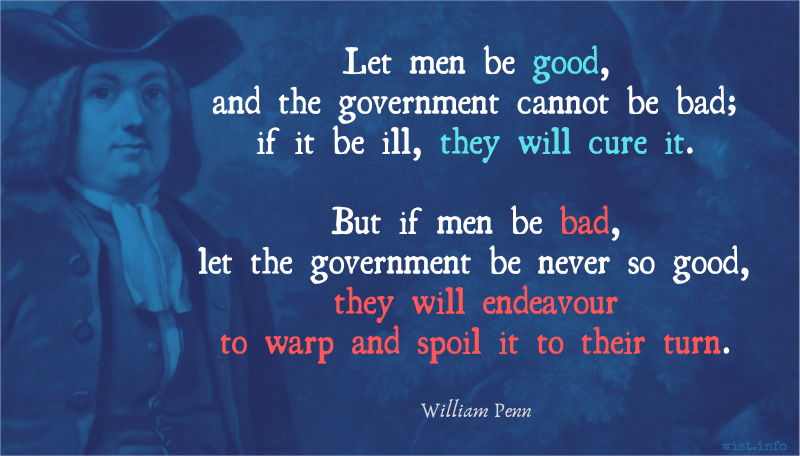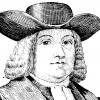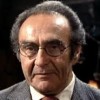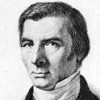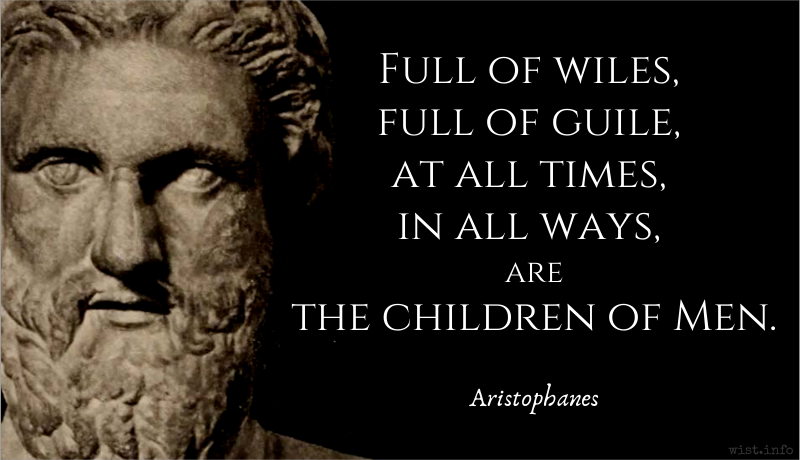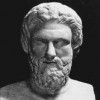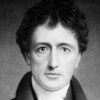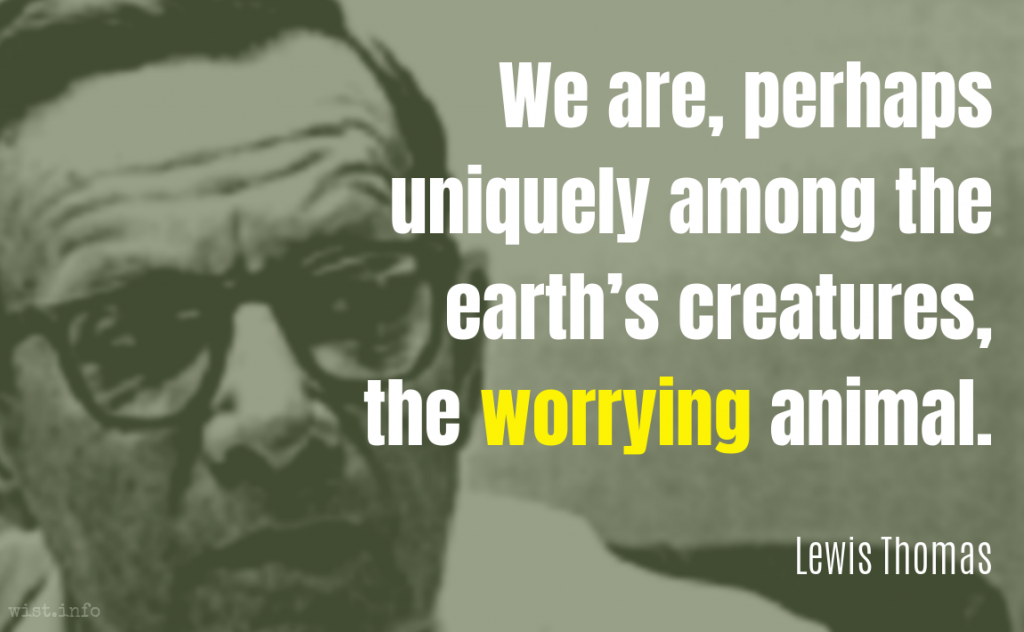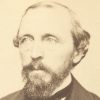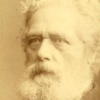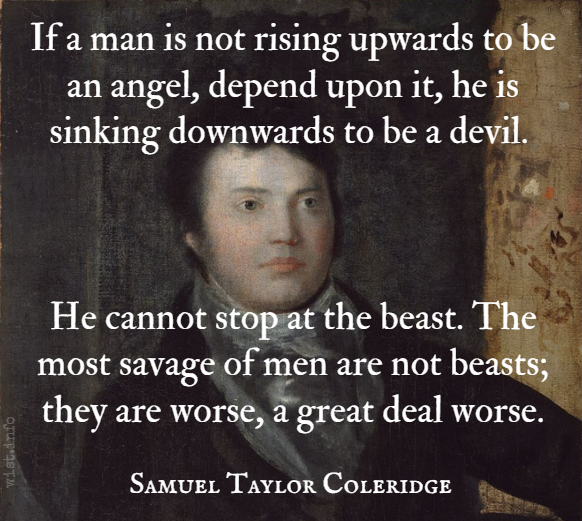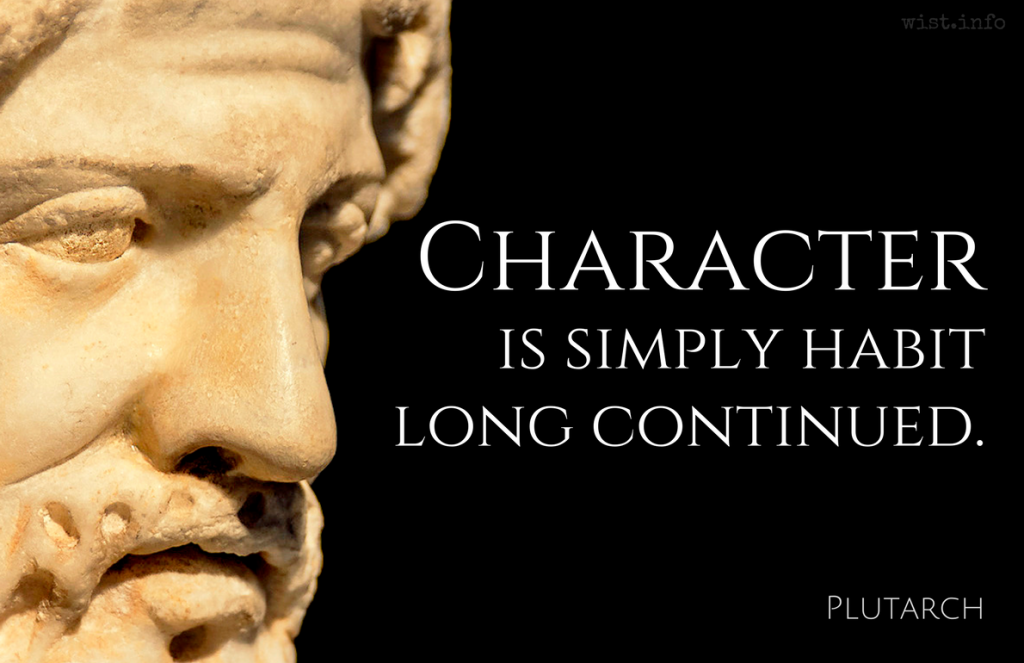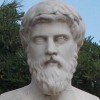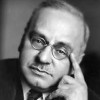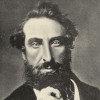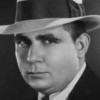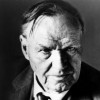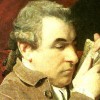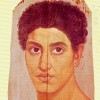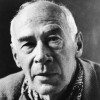Everybody needs beauty as well as bread, places to play in and pray in, where Nature may heal and cheer and give strength to body and soul alike. This natural beauty-hunger is made manifest in the little window-sill gardens of the poor, though perhaps only a geranium slip in a broken cup, as well as in the carefully tended rose and lily gardens of the rich, the thousands of spacious city parks and botanical gardens, and in our magnificent National parks.
John Muir (1838-1914) Scottish-American naturalist
The Yosemite, ch. 15 “Hetch Hetchy Valley” (1912)
(Source)
Quotations about:
human nature
Note not all quotations have been tagged, so Search may find additional quotes on this topic.
When great causes are on the move in the world, stirring all men’s souls, drawing them from their firesides, casting aside comfort, wealth, and the pursuit of happiness in response to impulses at once awe-striking and irresistible, we learn that we are spirits, not animals, and that something is going on in space and time, and beyond space and time, which, whether we like it or not, spells duty.
Winston Churchill (1874-1965) British statesman and author
BBC Radio broadcast (16 Jun 1941)
(Source)
First published in the Imperial Review (28 Jun 1941).
The history of the human race is a continual struggle from darkness towards light. It is, therefore, to no purpose to discuss the use of knowledge; man wants to know, and when he ceases to do so, he is no longer man.
Fridtjof Nansen (1861-1930) Norwegian explorer, scientist, diplomat, humanitarian
“A New Route to the North Pole,” The Forum (Aug 1891)
(Source)
Men may be divided almost any way we please, but I have found the most useful distinction to be made between those who devote their lives to conjugating the verb “to be” and those who spend their lives conjugating the verb “to have.”
Sydney J. Harris (1917-1986) Anglo-American columnist, journalist, author
For the Time Being, ch. 6, epigram (1972)
(Source)
Man, in his present state, appears to be a degraded creature; his best gold is mixed with dross, and his best motives are very far from being pure and free from earth and impurity.
John Jay (1745-1829) American statesman, diplomat, abolitionist, politician, Chief Justice (1789-1795)
Letter to Lindley Murray (22 Aug 1774)
(Source)
We are born believing, A man bears beliefs as a tree bears apples.
Ralph Waldo Emerson (1803-1882) American essayist, lecturer, poet
“Worship,” The Conduct of Life, ch. 6 (1860)
(Source)
To believe that man’s aggressiveness or territoriality is in the nature of the beast is to mistake some men for all men, contemporary society for all possible societies, and, by a remarkable transformation, to justify what is as what needs must be; social repression becomes a response to, rather than a cause of, human violence.
Leon Eisenberg (1922-2009) American psychiatrist and medical educator
“The Human Nature of Human Nature,” Science (14 Apr 1972)
(Source)
Based on an address at Faculty of Medicine Day, McGill University Sesquicentennial Celebration, Montreal, Canada (1 Oct 1971).
There are three things which are real: God, human folly, and laughter. Since the first two pass our comprehension, we must do what we can with the third.
Aubrey Menen (1912-1989) British writer, novelist, satirist, theatre critic
Rama Retold, Book 3, ch. 7 [Valmiki] (1954)
(Source)
This book is a modern retelling of part of the Ramayana.
A variant of this was inscribed on a silver beer mug given on a gift that President John F Kennedy gave to David Powers:
There are three things which are real:
God, human folly and laughter.
The first two are beyond our comprehension
So we must do what we can with the third.
Governments, like clocks, go from the motion men give them, and as governments are made and moved by men, so by them they are ruined too. Wherefore governments rather depend upon men, than men upon governments. Let men be good, and the government cannot be bad; if it be ill, they will cure it. But if men be bad, let the government be never so good, they will endeavour to warp and spoil it to their turn.
William Penn (1644-1718) English writer, philosopher, politician, statesman
First Frame of Government for Pennsylvania, Preface (1682)
(Source)
A political convention is just not a place where you come away with any trace of faith in human nature.
Murray Kempton (1917-1997) American journalist.
Column on the 1960 Republican National Convention, Chicago (28 Jul 1960)
(Source)
People are very romantic about these guys, but the only thing I’ve ever learned is that if you talk to gangsters long enough, you’ll find out they’re just as bad as respectable people.
Murray Kempton (1917-1997) American journalist.
In Ron Rosenbaum, The Secret Parts of Fortune, “The Connoisseur of Scoundrels” (2000)
(Source)
The human baby, the human being, is a mosaic of animal and angel.
Jacob Bronowski (1908-1974) Polish-English humanist and mathematician
The Ascent of Man, ch. 1 (1973)
(Source)
Since the natural tendencies of mankind are so bad that it is not safe to allow them liberty, how comes it to pass that the tendencies of organizers are always good? Do not the legislators and their agents form a part of the human race? Do they consider that they are composed of different materials from the rest of mankind? They say that society, when left to itself, rushes to inevitable destruction, because its instincts are perverse. They presume to stop it in its downward course, and to give it a better direction. They have, therefore, received from heaven, intelligence and virtues that place them beyond and above mankind: let them show their title to this superiority.
Frédéric Bastiat (1801-1850) French philosopher, economist, politician
The Law (1850)
(Source)
Alt. trans.: "If the natural tendencies of mankind are so bad that it is not safe to permit people to be free, how is it that the tendencies of these organizers are always good? Do not the legislators and their appointed agents also belong to the human race? Or do they believe that they themselves are made of a finer clay than the rest of mankind? The organizers maintain that society, when left undirected, rushes headlong to its inevitable destruction because the instincts of the people are so perverse. The legislators claim to stop this suicidal course and to give it a saner direction. Apparently, then, the legislators and the organizers have received from Heaven an intelligence and virtue that place them beyond and above mankind; it so, let them show their titles to this superiority." [Source]
CHORUS: Full of wiles, full of guile, at all times, in all ways, are the children of Men.
[δολερὸν μὲν ἀεὶ κατὰ πάντα δὴ τρόπον / πέφυκεν ἄνθρωπος]
Aristophanes (c. 450-c. 388 BC) Athenian comedic playwright
The Birds, ll. 451-2 (414 BC) [tr. Rogers (1906)]
(Source)
Alt. trans.:
- "Man naturally is deceitful, ever indeed, and always, in every one thing." [tr. Warter (1830)]
- "Man is naturally deceitful ever, in every way!" [tr. Hickie (1853)]
- "Man is a truly cunning creature." [abridged tr. O'Neill (1938)]
- "A treacherous thing always in every way is human nature." [tr. Henderson (1998)]
Natur iz a kind mother. She couldn’t well afford to make us perfekt, and so she made us blind to our failings.
[Nature is a kind mother. She couldn’t well afford to make us perfect, and so she made us blind to our failings.]
Josh Billings (1818-1885) American humorist, aphorist [pseud. of Henry Wheeler Shaw]
Everybody’s Friend, Or; Josh Billing’s Encyclopedia and Proverbial Philosophy of Wit and Humor, “Lobstir Sallad” (1874)
(Source)
Do not only look
For gentlefolk in castles: everywhere,
In humble dwellings and in haylofts, too,
The hearts of men are often kind and true.[Che non pur per cittadi e per castella,
Ma per tuguri ancora e per fenili
Spesso si trovan gli uomini gentili.]Ludovico Ariosto (1474-1533) Italian poet
Orlando Furioso, Canto 14, st. 62 (1532) [tr. Reynolds (1973)]
(Source)
Alt. trans.: "For not alone dwells Hospitality / In court and city; but ofttimes we find / In loft and cottage men of gentle kind." [tr. Rose (1831)]
Most men resemble great deserted palaces: the owner occupies only a few rooms and has closed-off wings where he never ventures.
[Presque tous les hommes ressemblent à ces grands palais déserts dont le propriétaire n’habite que quelques pièces; et il ne pénètre jamais dans les ailes condamnées.]
My definition of Man is “a Cooking animal.” The beasts have memory, judgment, and all the faculties and passions of our mind, in a certain degree; but no beast is a cook. … Man alone can dress a good dish; and every man whatever is more or less a cook, in seasoning what he himself eats.
James Boswell (1740-1795) Scottish biographer, diarist, lawyer
The Journal of a Tour to the Hebrides with Samuel Johnson, Sunday, 15 Aug, footnote (1785)
(Source)
Unlike most quoted Boswell, this is his own thought, not that of Samuel Johnson, recounting a conversation he had with Edmund Burke.
After all, to the well-organized mind, death is but the next great adventure. You know, the Stone was really not such a wonderful thing. As much money and life as you could want! The two things most human beings would choose above all — the trouble is, humans do have a knack for choosing precisely those things that are worst for them.
Human beings are more alike than unalike. There’s no real mystique. Every human being, every Jew, Christian, back-slider, Muslim, Shintoist, Zen Buddhist, atheist, agnostic, every human being wants a nice place to live, a good place for the children to go to school, healthy children, somebody to love, the courage, the unmitigated gall, to accept love in return, some place to relax on Saturday or Sunday night, and some place to experience their God.
Maya Angelou (1928-2014) American poet, memoirist, activist [b. Marguerite Ann Johnson]
“The Art of Fiction,” Paris Review, #116, Interview with George Plimpton (1990)
(Source)
A similar passage, from a speech at Ohio Dominican College (9 Dec 1993): "Humans are wonderfully different and marvelously alike. Human being are more alike than unalike. Whether in Paris, Texas, or Paris, France, we all want to have good jobs where we are needed and respected and paid just a little more than we deserve. We want healthy children, safe streets, to be loved and have the unmitigated gall to accept love. If we are religious, we want a place to perpetuate God. If not, we want a good lecture every once in a while. And everyone wants someplace to party on Saturday nights."
I am a democrat because I believe in the Fall of Man. I think most people are democrats for the opposite reason. A great deal of democratic enthusiasm descends from the ideas of people like Rousseau, who believed in democracy because they thought mankind so wise and good that everyone deserved a share in government. The danger of defending democracy on those grounds is that they’re not true. And whenever their weakness is exposed, the people who prefer tyranny make capital out of the exposure. I find that they’re not true without looking further than myself. I don’t deserve a share in governing a hen-roost, much less a nation. Nor do most people — all the people who believe advertisements, and think in catchwords and spread rumours. The real reason for democracy is just the reverse. Mankind is so fallen that no man can be trusted with unchecked power over his fellows. Aristotle said that some people were only fit to be slaves. I do not contradict him. But I reject slavery because I see no men fit to be masters.
I’ve seen the meanness of humans till I don’t know why God ain’t put out the sun and gone away.
Cormac McCarthy (1933-2023) American novelist, playwright, screenwriter
Outer Dark, ch. 17 (1968)
(Source)
Mr. Khrushchev says that Communism, the police state, will bury the free ones. He is a smart gentleman, he knows that this is nonsense since freedom, man’s dim concept of and belief in the human spirit is the cause of all his troubles in his own country. But if he means that Communism will bury capitalism, he is correct. That funeral will occur about ten minutes after the police bury gambling. Because simple man, the human race, will bury both of them. That will be when we have expended the last grain, dram, and iota of our natural resources. But man himself will not be in that grave. The last sound on the worthless earth will be two human beings trying to launch a homemade spaceship and already quarreling about where they are going next.
Prudent men are in the habit of saying — and not by chance or without basis — that he who wishes to see what is to come should observe what has already happened, because all the affairs of the world, in every age, have their individual counterparts in ancient times. The reason for this is that since they are carried on by men, who have and always have had the same passions, of necessity the same results appear.
Niccolò Machiavelli (1469-1527) Italian politician, philosopher, political scientist
The Discourses on Livy, Book 3, ch. 43 (1517) [tr. Gilbert (1958)]
(Source)
Alt. trans.: "The wise are wont to say, and not without reason or at random, that he who would forecast what is about to happen should look to what has been; since all human events, whether present or to come, have their exact counterpart in the past. And this, because these events are brought about by men, whose passions and dispositions remaining in all ages the same naturally give rise to the same effects." [tr. Thomson]
The human animal needs a freedom seldom mentioned, freedom from intrusion. He needs a little privacy quite as much as he wants understanding or vitamins or exercise or praise.
Certainly it is presumptuous to say that we cannot improve, and that Man, who has only been in power for a few thousand years, will never learn to make use of his power. All I mean is that, if people continue to kill one another as they do, the world cannot get better than it is, and that, since there are more people than formerly, and their means for destroying one another superior, the world may well get worse. What is good in people — and consequently in the world — is their insistence on creation, their belief in friendship and loyalty for their own sakes; and, though Violence remains and is, indeed, the major partner in this muddled establishment, I believe that creativeness remains too, and will always assume direction when violence sleeps.
E. M. Forster (1879-1970) English novelist, essayist, critic, librettist [Edward Morgan Forster]
“What I Believe,” The Nation (16 Jul 1938)
(Source)
Man is a reasoning animal. Therefore, man’s highest good is attained if he has fulfilled the good for which nature designed him at birth. And what is it which this reason demands of him? The easiest thing in the world — to live in accordance with his nature. But this has turned into a hard task by the general madness of mankind; we push one
another into vice.Seneca the Younger (c. 4 BC-AD 65) Roman statesman, philosopher, playwright [Lucius Annaeus Seneca]
Letters to Lucilius, Letter 41 (c. 65 AD)
(Source)
It is our firm belief that if souls were visible to the eye we should clearly see that strange thing whereby every single member of the human species corresponds to some species of the animal world. And we would easily be able to recognize that truth barely apprehended by the philosopher, which is that, from the oyster to the eagle, from the pig to the tiger, all animals are to be found in mankind, and each one of them is to be found in some man. Sometimes even several at a time.
[Dans notre conviction, si les âmes étaient visibles aux yeux, on verrait distinctement cette chose étrange que chacun des individus de l’espèce humaine correspond à quelqu’une des espèces de la création animale ; et l’on pourrait reconnaître aisément cette vérité à peine entrevue par le penseur, que, depuis l’huître jusqu’à l’aigle, depuis le porc jusqu’au tigre, tous les animaux sont dans l’homme et que chacun d’eux est dans un homme. Quelquefois même plusieurs d’entre eux à la fois.]
Victor Hugo (1802-1885) French writer
Les Misérables, Part 1 “Fantine,” Book 5 “The Descent,” ch. 5 (1.5.5) (1862) [tr. Donougher (2013)]
(Source)
Commentary while introducing Javert (whose "animal" is the one wolf born in each litter which is killed by the mother so that he does not kill the others).
(Source (French)). Alternate translations:
It is our conviction that if souls were visible to the eyes, we should be able to see distinctly that strange thing, that each one individual of the human race corresponds to some one of the species of the animal creation; and we could easily recognize this truth, hardly perceived by the thinker, that from the oyster to the eagle, from the pig to the tiger, all animals exist in man, and that in each one of them is in a man. Sometimes even several of them at a time.
[tr. Wilbour (1862)]
In our conviction, if souls were visible we should distinctly see the strange fact that every individual of the human species corresponds to some one of the species of animal creation; and we might easily recognize the truth, which has as yet scarce occurred to the thinker, that, from the oyster to the eagle, from the hog to the tiger, all animals are in man, and that each of them is in a man; at times, several of them at once.
[tr. Wraxall (1862)]
It is our conviction that if souls were visible to the eyes, we should be able to see distinctly that strange thing that each one individual of the human race corresponds to some one of the species of the animal creation; and we could easily recognize this truth, hardly perceived by the thinker, that from the oyster to the eagle, from the pig to the tiger, all animals exist in man, and that each one of them is in a man. Sometimes even several of them at a time.
[tr. Hapgood (1887)]
It is our belief that if the soul were visible to the eye every member of the human species would be seen to correspond to some species of the animal world and a truth scarcely perceived by thinkers would be readily confirmed, namely, that from the oyster to the eagle, from the swine to the tiger, all animals are to be found in men and each of them exists in some man, sometimes several at a time.
[tr. Denny (1976)]
It is our belief that if the soul were visible to the eye, every member of the human species would be seen to correspond to some species of the animal world, and a truth scarcely perceived by thinkers would be readily confirmed, namely, that from the oyster to the eagle, from the swine to the tiger, all animals are to be found in men and each of them exists in some man, sometimes several at a time.
[tr. Wilbour/Fahnestock/MacAfee (1987)]
We are, perhaps uniquely among the earth’s creatures, the worrying animal. We worry away our lives, fearing the future, discontent with the present, unable to take in the idea of dying, unable to sit still.
Lewis Thomas (1913-1993) American physician, poet, essayist, researcher
“The Youngest and Brightest Thing Around,” The Medusa and the Snail: More Notes of a Biology Watcher (1979)
(Source)
The authentic human being is one of us who instinctively knows what he should not do and, in addition, will balk at doing it. He will refuse to do it, even if this brings down dread consequences to him and those whom he loves. This, to me, is the ultimately heroic trait of ordinary people. They say “no” to the tyrant and they calmly take the consequences of this resistance. Their deeds may be small, and almost always unnoticed, unmarked by history. Their names are not remembered, nor did these authentic humans expect their names to be remembered. I see their authenticity in an odd way: not in their willingness to perform great heroic deeds, but in their quiet refusals to commit villainies. In essence, they cannot be compelled to be what they are not.
I look at some of the great novelists, and I think the reason they are great is that they’re telling the truth. The fact is they’re using made-up names, made-up people, made-up places, and made-up times, but they’’re telling the truth about the human being — what we are capable of, what makes us lose, laugh, weep, fall down, and gnash our teeth and wring our hands and kill each other and love each other.
Maya Angelou (1928-2014) American poet, memoirist, activist [b. Marguerite Ann Johnson]
“The Art of Fiction,” Paris Review, #116, Interview with George Plimpton (1990)
(Source)
The greatest works of art speak to us without knowing of us.
Alain de Botton (b. 1969) Swiss-British author
The Consolations of Philosophy, ch. 5 “Consolation for a Broken Heart” (2000)
(Source)
The best aphorisms are pointed expressions of the results of observation, experience, and reflection. They are portable wisdom, the quintessential extracts of thought and feeling. They furnish the largest amount of intellectual stimulus and nutriment in the smallest compass. About every weak point in human nature, or vicious spot in human life, there is deposited a crystallization of warning and protective proverbs.
William Rounseville Alger (1822-1905) American writer, minister, translator
“The Utility and the Futility of Aphorisms,” Atlantic Monthly (Feb 1863)
(Source)
Often paraphrased, "Aphorisms are portable wisdom."
Man is a military animal,
Glories in gunpowder, and loves parade;
Prefers them to all things.Philip James Bailey (1816-1902) English poet, lawyer
Festus, Sc. “A Metropolis – Public Place” [Lucifer] (1839)
(Source)
When you are twenty years old, you will be a peacock; at thirty, a lion; at forty, a camel; at fifty, a serpent; at sixty, a dog; at seventy, a monkey; and at eighty, nothing..
[A los veinte años será pavón; a los treinta, león; a los cuarenta, camello; a los cincuenta, serpiente; a los sesenta, perro; a los setenta, mona; y a los ochenta, nada.]
Baltasar Gracián y Morales (1601-1658) Spanish Jesuit priest, writer, philosopher
The Art of Worldly Wisdom [Oráculo Manual y Arte de Prudencia], § 276 (1647) [tr. Maurer (1992)]
(Source)
(Source (Spanish)). Alternate translations:
At twenty years of age a Peacock; at thirty a Lion; at fourty a Camel; at fifty a Serpent; at sixty a Dog; at seventy an Ape; at fourscore nothing at all.
[Flesher ed. (1685)]
At twenty a man is a Peacock, at thirty a Lion, at forty a Camel, at fifty a Serpent, at sixty a Dog, at seventy an Ape, at eighty nothing.
[tr. Jacobs (1892)]
At twenty, man is a peacock, at thirty a lion, at forty a camel, at fifty a snake, at sixty a dog, at seventy an ape, and at eighty, nothing.
[tr. Fischer (1937)]
A man is a god in ruins.
Ralph Waldo Emerson (1803-1882) American essayist, lecturer, poet
“Nature,” ch. 8, Nature: Addresses and Lectures (1849)
(Source)
If a man is not rising upwards to be an angel, depend upon it, he is sinking downwards to be a devil. He cannot stop at the beast. The most savage of men are not beasts; they are worse, a great deal worse.
Character is simply habit long continued.
Plutarch (AD 46-127) Greek historian, biographer, essayist [Mestrius Plutarchos]
Moral Writings [Moralia], “On the Education of Children,” 4.3 [tr. Babbitt and Goodwin]
(Source)
To be a human being means to possess a feeling of inferiority which constantly presses towards its own conquest. … The greater the feeling of inferiority that has been experienced, the more powerful is the urge for conquest and the more violent the emotional agitation.
He who has so little knowledge of human nature, as to seek happiness by changing any thing but his own dispositions, will waste his life in fruitless efforts, and multiply the griefs which he purposes to remove.
Samuel Johnson (1709-1784) English writer, lexicographer, critic
The Rambler, #6 (7 Apr 1750)
(Source)
Kull was still mazed. “But being a wizard, having knowledge of all the ages and despising gold, glory, and position, what could Kaanuub offer Tuzun Thune that would make of him a foul traitor?”
“Gold, power, and position,” grunted Brule. “The sooner you learn that men are men whether wizard, king, or thrall, the better you will rule, Kull.”
The most general survey shows us that the two foes of human happiness are pain and boredom.
[Der allgemeinste Überblick zeigt uns, als die beiden Feinde des menschlichen Glückes, den Schmerz und die Langeweile.]
Arthur Schopenhauer (1788-1860) German philosopher
Parerga and Paralipomena, Vol. 1, “Aphorisms on the Wisdom of Life [Aphorismen zur Lebensweisheit],” ch. 2 “Of What One Is” [Von dem, was einer ist]” (1851) [tr. Saunders (1890)]
(Source)
(Source (German)). Alternate translation:
The most general survey shows that pain and boredom are the two foes of human happiness.
[tr. Payne (1974)]
It’s silly to go on pretending that under the skin we are all brothers. The truth is more likely that under the skin we are all cannibals, assassins, traitors, liars, hypocrites, poltroons.
Henry Miller (1891-1980) American novelist
“Two Writers in Praise of Rabelais and Each Other,” New York Times (7 Sep 1974)
(Source)
The high sentiments always win in the end, the leaders who offer blood, toil, tears, and sweat always get more out of their followers than those who offer safety and a good time. When it comes to the pinch, human beings are heroic.
Human nature is at once sublime and horrible, holy and satanic. Apart from the accumulation of knowledge and experience, which are external and precarious acquisitions, there is no proof that we have changed much since the first stone age.

